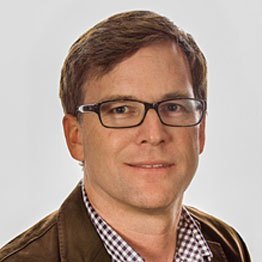Bright Career Prospects for Global Sustainability Professionals
By Dr. David Robertson
April 11, 2019

The employment market for global sustainability professionals (GSPs) is thriving. GSPs work in a surprisingly wide variety of jobs at all levels and in all sectors, including business, government, and civil society organizations. GSPs work on topics ranging from climate and energy to food and agriculture to water and health. These jobs can be in large and small organizations located in cities and rural areas worldwide.
Diverse backgrounds matter Likewise, the career paths and employment histories of GSPs are quite varied and dynamic. There are no specific prerequisites and no one particular path to a career in this field. According to Greenbiz’s 2018 State of the Profession Report: “Two-thirds of vice presidents, managers and individual contributors reported being hired from the outside for their sustainability role, while 56 percent of directors were brought in from the outside. In terms of specific sectors inclined to seek fresh perspectives, financial services, consumer goods, and technology companies top the list for looking outside for talent.”
Networking is key Along these lines, networking is key to career change (and advancement). The Greenbiz report emphasizes that “for both internal and external sustainability job seekers, there is one key strategy: networking. When we asked those coming from the outside to their sustainability role, one-quarter of external hires heard about their job through word of mouth, and another 30 to 40 percent were contacted directly by the company. Executive search firms play a role in senior hires (22 percent of vice presidents heard about their job through a recruiter), but the best approach comes from professionals continually expanding and updating their networks.”
Lead from where you are Furthermore, at the recent Climate Leadership Conference in Baltimore, one of the speakers, Lisa Shpritz, SVP Environmental Business & Engagement Executive at Bank of America, recommended that people looking for work in this field, or simply seeking to have an impact on these issues at work, should not just look for jobs with “environmental” or “sustainability” in the title. Rather, she suggests, “You can do this work from any job.” This is consistent with what hiring managers and human resource officers tell us: that all jobs increasingly require employees to be aware of these issues and work on them directly or indirectly. Like diversity and inclusion, environmental and sustainability considerations are increasingly part of everyone’s job.
Since the field is open to individuals from a wide variety of academic and professional backgrounds, perhaps you too have the potential to be a global sustainability professional! This aligns with the philosophy and leadership practices we teach in our Master of Natural Resources degree programs: You can lead from where you are, with or without authority, and to have an influence on the things you care about.
Lifelong learning Speaking of graduate degrees, the National Association of Environmental Management (NAEM) reports that while only 30 percent of sustainability professionals in their first five years in the profession have master’s degrees, over 60 percent do by the time they have ten years of experience. And, according to the Greenbiz report, more than two-thirds of managers and directors (72 percent and 69 percent, respectively) have a Master’s degree. The Greenbiz report concludes: “One of the key attributes we have seen in successful sustainability professionals is that they are constant learners.”
All MNR students receive personal career coaching. Even if you have a solid grasp of your values and skills, career coaching can help you:
- Think strategically about your key accomplishments
- Focus your energy on the right next steps
- Develop a career path that leads to the work you really want to do.
If you have questions about our career coaching services or any aspect of the MNR degree programs, please contact our Student Advisor Emily Talley at emtalley@vt.edu.
---

Dr. David Robertson directs Virginia Tech’s Executive Master of Natural Resources program, advises students, and teaches courses in sustainable development and urban ecology. Also, he conducts research on green infrastructure systems and sustainable development strategies and has published research in journals such as Society & Natural Resources, Conservation Biology, Ecology & Society, Environmental Management, and Environmental Science & Policy.


